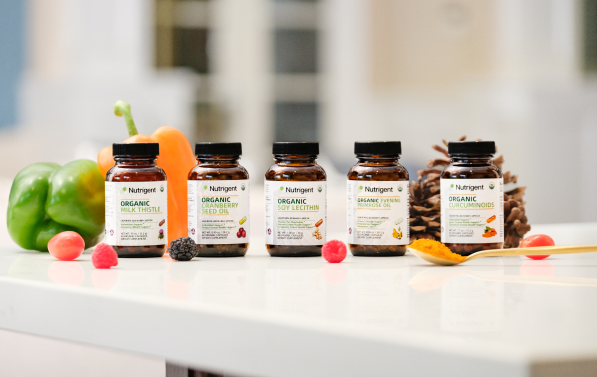Free Ship Over $75
15% OFF First Order
-
Shop
NEW & NEATURED
SHOP BY HEALTH BENEFITS
-
About Us
-
Shop
NEW & NEATURED
SHOP BY HEALTH BENEFITS

-
About Us
Free Ship Over $75
15% OFF First Order


Dietary supplements are among the most common therapies in Integrative Medicine and Health (IMH) and Complementary and Alternative Medicine (CAM). In the pursuit of well-being, they have become a daily choice for many modern individuals. Not only are they convenient and easy to use, but they are also believed to offer a wide range of health benefits. However, there are many lesser-known details about dietary supplements. Today, let’s dive deeper into the world of supplements, especially organic-certified products and discover how they can elevate our health journey.

As consumer awareness of health and environmental protection grows, organic dietary supplements are gaining popularity. The raw materials for organic supplements must come from certified organic farms, adhering to strict organic agriculture standards — without the use of synthetic pesticides, chemical fertilizers, growth hormones, or genetic modification technologies. The sourcing process must carefully evaluate the origin, quality, and purity of raw materials, ensuring supplier reliability and ingredient consistency. Finished products must have accurate labeling, including a full list of ingredients, manufacturer information, organic certification logos (if applicable), and any necessary health claims or warnings.
Organic Certification: Under the USDA Organic Act, both the raw materials and the final product must meet specific organic certification standards to legally bear the term “organic” on their labels. When you see an organic certification mark on a supplement package, it means the product has passed rigorous certification procedures, ensuring its production process aligns with organic farming principles. These supplements often contain fewer chemical residues and higher nutrient values, making them an important choice for consumers pursuing a pure and natural lifestyle.

Many people believe that anything “natural” is automatically safe — a common misconception. While dietary supplements are often plant- or animal-derived, this doesn’t guarantee they are free from side effects or interactions with other medications. A “natural” label does not ensure safety or effectiveness. Therefore, understanding the ingredients and potential side effects is crucial when choosing a supplement.
As dietary supplements become more widespread, clinical research on their safety and efficacy is also increasing. The National Center for Complementary and Integrative Health (NCCIH) [https://www.nccih.nih.gov/] is an important resource for accessing these research findings. By consulting credible studies, consumers can better understand the true benefits and potential risks of dietary supplements and make more informed choices.

The Dietary Supplement Health and Education Act (DSHEA), passed in 1994, standardized the definition and labeling requirements for dietary supplements. According to DSHEA, supplement labels must clearly state that the product’s claims have not been evaluated by the U.S. Food and Drug Administration (FDA). This means that, although a supplement may claim certain health benefits, these claims have not undergone rigorous scientific review. Consumers must read labels carefully and understand both the listed ingredients and the nature of any health claims.
Selecting the right dietary supplement requires careful consideration of your individual health needs and lifestyle. For example, if you are looking to support cardiovascular health, a supplement rich in Omega-3 krill oil could be a great option. For those aiming to boost immune function, products containing vitamin C and zinc might be more suitable. Understanding your body’s needs, combined with knowledge of a supplement’s scientific background, safety profile, and effectiveness, is every consumer’s responsibility. This will help you choose the most appropriate dietary supplement for yourself. At the same time, opting for organic-certified dietary supplements not only benefits your own health but also contributes positively to the well-being of our planet.

Customer Support: If you have any questions or need assistance, please contact our customer service team info@nutrigent.us. Our service hours are Monday to Friday, 9:00 AM to 5:00 PM.
DISCLAIMER: *These statements and any claims made about specific products on or through this site have not been evaluated by the Food and Drug Administration and are not intended to diagnose, treat, cure, or prevent any disease. This site is not intended to provide diagnosis, treatment, or medical advice, and all content provided is for informational purposes only.*